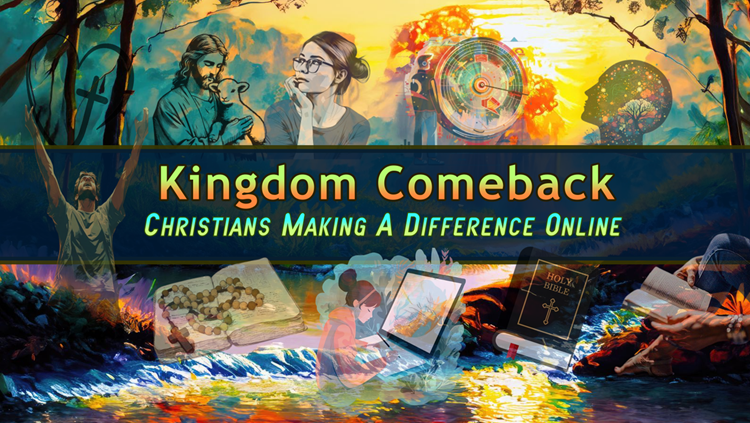
The quest for meaning and purpose has become a fundamental aspect of the human experience in a chaotic and fast-paced world. Individuals across different cultures and backgrounds seek to understand their place in the world, striving to uncover a more profound significance in their lives. The search for meaning is not merely an abstract pursuit; it has profound implications for our mental health, relationships, and overall well-being. This article explores the importance of finding meaning and purpose in life, its psychological and social benefits, and ways to cultivate a more meaningful existence.
Understanding Meaning and Purpose
Meaning can be described as the significance we assign to our experiences, while purpose refers to the sense of direction and intention that guides our actions. These concepts are deeply intertwined; meaning often emerges from pursuing a purpose. Philosophers, psychologists, and spiritual leaders have long pondered these ideas, recognizing their crucial role in human  fulfillment.
fulfillment.
The Psychological Perspective
From a psychological standpoint, finding meaning and purpose has been linked to various positive outcomes. Research in positive psychology highlights that individuals who perceive their lives as meaningful report higher happiness, resilience, and life satisfaction levels. According to Viktor Frankl, a psychiatrist and Holocaust survivor, pursuing meaning is a primary motivational force in human beings. His experiences in concentration camps led him to conclude that those who found meaning in their suffering were more likely to survive.
Frankl’s insights underscore that the quest for meaning can provide hope and endurance even in the most challenging circumstances. Numerous studies have supported this notion, indicating that individuals with a strong sense of purpose tend to cope better with stress, recover more quickly from trauma, and maintain better mental health.
The Social Perspective
On a social level, the search for meaning and purpose can foster connections and community. Shared values and common goals create bonds among individuals, enhancing social cohesion. For instance, people who engage in volunteer work often report feeling more fulfilled and connected to others. This sense of belonging can counteract loneliness and isolation, which are increasingly prevalent in contemporary society.
Moreover, meaningful relationships are often built on shared pursuits and mutual support. When individuals align their purposes with those of their communities, they contribute to collective well-being, creating a ripple effect that enhances the lives of others. This interconnectedness highlights the social dimension of meaning and purpose, reinforcing the idea that our journeys are often intertwined with those of others.

The Benefits of a Meaningful Life
Finding meaning and purpose offers several benefits, from enhanced mental health to improved physical well-being. Here are some key advantages:
1. Improved Mental Health
Individuals who perceive their lives as meaningful are less likely to experience symptoms of depression and anxiety. The act of identifying and pursuing personal values can serve as a buffer against mental health challenges. For instance, engaging in activities that align with one’s values can foster a sense of accomplishment and self-worth.
2. Greater Resilience
Resilience, the ability to bounce back from adversity, is bolstered by a sense of purpose. When faced with challenges, individuals with a clear understanding of meaning are likelier to persevere. They view setbacks as opportunities for growth rather than insurmountable obstacles.
3. Enhanced Physical Health 
Research has demonstrated a correlation between having a purpose and better physical health outcomes. Individuals with a strong sense of meaning tend to engage in healthier behaviors, such as regular exercise, balanced nutrition, and avoiding harmful habits like smoking or excessive drinking. Committing to a purposeful life can lead to a longer lifespan and improved overall health.
4. Increased Motivation and Productivity
A clear sense of purpose fuels motivation. When individuals understand the “why” behind their actions, they are more likely to remain committed and productive. This intrinsic motivation can lead to greater achievement in personal and professional endeavors, creating a positive feedback loop that reinforces a sense of meaning.
5. Improved Relationships
When individuals pursue meaningful goals, they often cultivate deeper connections with others. Sharing a purpose fosters collaboration, understanding, and empathy. As people work together toward common objectives, they build trust and intimacy, enriching their relationships.

Cultivating Meaning and Purpose
Finding meaning and purpose is a personal journey that may require reflection, exploration, and intentionality. Here are some strategies to help individuals cultivate a more meaningful life:
1. Self-Reflection
Taking introspection can help individuals clarify their values, passions, and beliefs. Journaling, meditation, or deep conversations with trusted friends can facilitate this process. Questions to consider include: What activities make me feel fulfilled? What values are most important to me? What legacy do I want to leave behind?

2. Set Goals Aligned with Values
Once individuals have identified their core values, they can set specific, achievable goals that align with those principles. These goals should be meaningful and resonate with one’s sense of purpose. Breaking larger objectives into smaller, actionable steps can create a sense of accomplishment.
3. Engage in Meaningful Activities
Participating in activities that resonate with personal values can enhance feelings of meaning. This might include volunteering, pursuing creative passions, or engaging in work that aligns with one’s beliefs. Finding flow in these activities—where time seems to disappear as one becomes fully immersed—can further amplify feelings of purpose.
4. Build Relationships
Cultivating meaningful relationships is crucial for enhancing life’s significance. Surrounding oneself with supportive, like-minded individuals can provide encouragement and inspiration. Engaging in community activities or joining groups that align with personal interests can help forge deeper connections. 
5. Embrace Challenges
Sometimes, meaning emerges from adversity. Embracing challenges and viewing them as opportunities for growth can foster resilience. Reflecting on past struggles and identifying lessons learned can help individuals better appreciate their journey.
6. Practice Gratitude
Fostering an attitude of gratitude can shift focus from what is lacking to what is meaningful. Regularly acknowledging and appreciating the positive aspects of life can enhance overall satisfaction and deepen one’s sense of purpose.
Conclusion
Finding meaning and purpose in life cannot be overstated. It shapes our mental health, influences our relationships, and ultimately defines our existence. In a world that often prioritizes material success and external validation, the quest for more profound significance serves as a reminder of what truly matters.

As we navigate the complexities of modern life, cultivating meaning and purpose can empower us to live authentically and connect with others in meaningful ways. Whether through self-reflection, goal-setting, or community engagement, the journey toward a more purposeful life is gratifying.
Ultimately, the search for meaning is not just about understanding our existence; it is about contributing to the more extraordinary tapestry of humanity and leaving a positive legacy for future generations.
CLAIM YOUR FREE BOOKS & COURSES!


